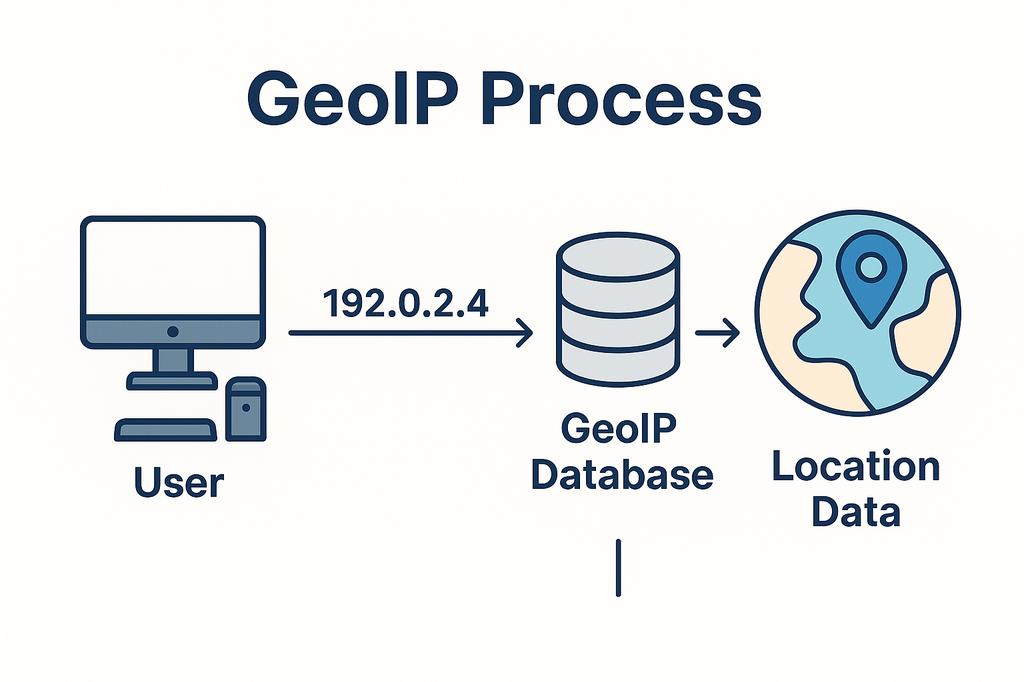How Geolocation Works

IP-based geolocation estimates a user's location by analyzing their IP address and comparing it to extensive global databases. Unlike GPS, which uses satellite data, IP geolocation relies on network routing information and registry data.
Accuracy depends on data sources such as Regional Internet Registries (RIRs), ISPs, infrastructure topology, and user-submitted data. Typically, geolocation can pinpoint a city, but not a precise street address.
Websites use geolocation to tailor content, enforce regional restrictions, detect fraud, and comply with local regulations. Marketers use it to deliver location-specific promotions and measure campaign reach in different regions.
Security professionals monitor geolocation data to spot suspicious login attempts or block access from high-risk countries. This aids in preventing fraud and protecting sensitive accounts.
Respecting user privacy is crucial when using geolocation data. Modern regulations require clear disclosure and often user consent before tracking or storing such location information for analysis or marketing.
